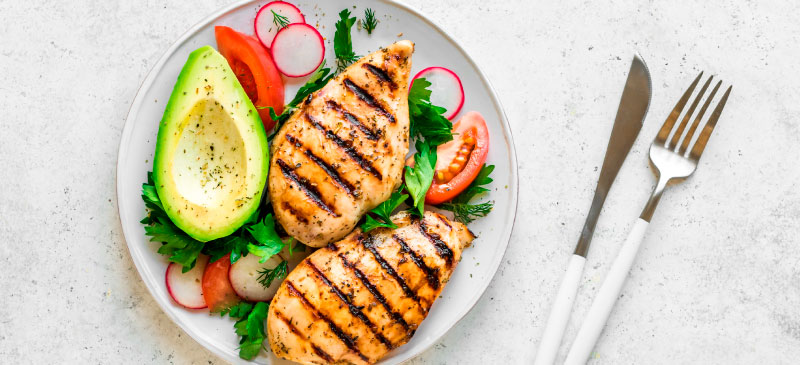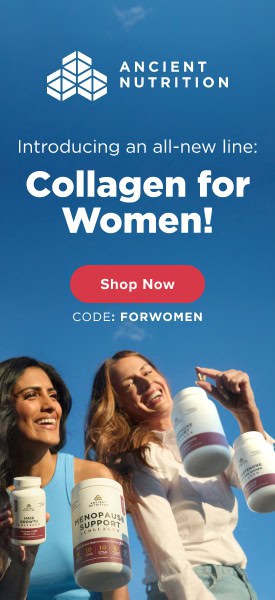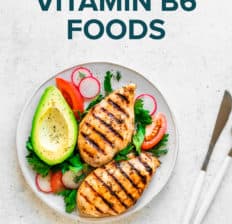This Dr. Axe content is medically reviewed or fact checked to ensure factually accurate information.
With strict editorial sourcing guidelines, we only link to academic research institutions, reputable media sites and, when research is available, medically peer-reviewed studies. Note that the numbers in parentheses (1, 2, etc.) are clickable links to these studies.
The information in our articles is NOT intended to replace a one-on-one relationship with a qualified health care professional and is not intended as medical advice.
This article is based on scientific evidence, written by experts and fact checked by our trained editorial staff. Note that the numbers in parentheses (1, 2, etc.) are clickable links to medically peer-reviewed studies.
Our team includes licensed nutritionists and dietitians, certified health education specialists, as well as certified strength and conditioning specialists, personal trainers and corrective exercise specialists. Our team aims to be not only thorough with its research, but also objective and unbiased.
The information in our articles is NOT intended to replace a one-on-one relationship with a qualified health care professional and is not intended as medical advice.
Best Vitamin B6 Foods
August 13, 2023

Vitamin B6 is a water-soluble vitamin that plays a role in more than 100 different reactions in the body, which is why you want to get vitamin B6 foods in your diet.
This vitamin is needed to help make amino acids, the building blocks of proteins and hundreds of cellular functions. It can also be used to make niacin (vitamin B3) from the amino acid tryptophan.
Other roles of vitamin B6 include the formation of hemoglobin and neurotransmitters, as well as regulation of blood glucose.
So how can you get vitamin B6 in your diet? Try the following vitamin B6 foods.
Vitamin B6 Foods
This vital vitamin can be found in high levels, naturally, in the following vitamin B6 foods (percentages based on 1.3 milligrams daily for adults under 51 years old):
1. Durian Fruit
One cup of durian fruit contains about 0.8 milligrams of vitamin B6 (47% DV).
Durian is considered by experts to be a very nutrient-dense fruit — particularly high in vitamin C, B vitamins (including thiamine, vitamin B6 and riboflavin), manganese and potassium. Unusually, it’s a fruit that contains fat. As a result, it’s higher in calories than most fruits, similar to avocado.
Durian also contains some protein, another unusual feature of a fruit. Overall it’s a very balanced food, providing fiber, fat, protein and carbs all in one package.
2. Turkey Breast
A three-ounce serving of turkey breast (about 85 grams) provides 0.7 milligrams of vitamin B6 (42% DV).
Thanks to its B6 content, along with other vitamins and minerals, turkey is also high in protein, selenium and even vitamin C. It also has tryptophan, making it good for sleep, and it has mood-boosting effects due to B6’s ability to help release “happy hormones.”
3. Grass-Fed Beef
A four-ounce serving of grass-fed beef (about 113 grams) has roughly 0.7 milligrams of B6 (42% DV).
Grass-fed beef is most definitely one of the top vitamin B6 foods, and it also provides other B vitamins, including niacin, B12, pantothenic acid and thiamine. It’s also a safer beef option that better for the environment, the animals and, of course, the person who eats it.
4. Sunflower Seeds
A one-cup serving of sunflower seeds delivers approximately 0.6 milligrams of this B vitamin (35% DV).
Sunflower seeds are surprisingly nutritious, providing a concentrated dose of many important essential nutrients. They can be enjoyed as is for a healthy snack, plus added to array of dishes, including salads, energy bars and so much more.
5. Pistachios
A one-ounce serving of pistachios (about 28 grams) possesses approximately 0.5 milligrams of vitamin B6 (29% DV).
Pistachio nutrition is also full of thiamine, copper, potassium, magnesium, iron, zinc, folate, calcium, vitamin A, vitamin C, vitamin E and niacin.
These nuts make for a healthy snack that also provide healthy fats, which makes them good for your heart, weight, eyes and more.
6. Tuna
One can of tuna fish (about 174 grams) contains approximately 0.4 milligrams of B6 (24% DV).
In addition to being one of the top vitamin B6 foods, tuna fish also is a high-protein food that is good for the brain, thyroid and gut. It’s also a rich source of other B vitamins and several other vitamins and minerals.
7. Pinto Beans
A one-cup serving of cooked pinto beans packs in 0.4 milligrams of this B vitamin (24% DV).
Pinto beans nutrition is also a good source of protein, fiber, folate, manganese, thiamine, copper, magnesium, phosphorus, potassium, selenium, iron, zinc, riboflavin, calcium and more. To get the most nutrition from these beans, make sure drain the liquids to tamp down the antinutrients they naturally possess, and sprout them if you have the time.
8. Avocado
One raw avocado (about 136 grams) holds about 0.4 milligrams of B6 (24% DV).
The B6 content is just one reason to eat this superfood. Avocados also are loaded with healthy fats and a vast array of other vitamins and minerals. As such, this fruit (yes, fruit!) can benefit all aspects of health. It’s great for combating disease; supporting the heart; maintaining eye, skin and hair health; and so much more.
9. Chicken Breast
A 58-gram serving of chicken breast houses about 0.3 milligrams of this vitamin (18% DV).
When choosing chicken, make sure you opt for free-range chicken to ensure the highest-quality meat. Free-range chicken has been proven to be healthier by providing more available nutrients, plus many people swear it tastes better than conventionally raised chicken. In addition, the chickens themselves are healthier, which in turn makes them healthier to eat.
10. Blackstrap Molasses
Two tablespoons of blackstrap molasses delivers approximately 0.3 milligrams of B6 (18% DV).
Commonly used as a natural sweetener, blackstrap molasses is healthier than many other sweeteners thanks to its nutrient content. In addition to vitamin B6, it provides several vital minerals and can help with stress, blood sugar, skin and bone health, and more. However, keep in mind that it’s high on the glycemic index and should be consumed in moderation.
11. Sesame Seeds
A quarter-cup serving (roughly 36 grams) of sesame seeds contains approximately 0.3 milligrams of vitamin B6 (18% DV).
In addition to being one of the best vitamin B6 foods, sesame seeds also provide plenty of minerals, including copper, manganese, calcium, magnesium, iron, phosphorus and zinc. These seeds have been shown to potentially help lower cholesterol, reduce blood pressure, balance hormone levels, combat cancer cell growth, boost fat-burning and enhance nutrient absorption.
Recipes
There is no shortage of ways to incorporate vitamin B6 foods into your diet. Here are some of my favorite recipes that feature the top 10 vitamin B6 foods:
- Herbed Turkey Breast
- Seared Grass-Fed Steak
- Pre-Workout Snacks that include pistachios and avocado
- Tahini
- Tuna Salad
Final Thoughts
- Vitamin B6 is a water-soluble vitamin that plays a role in over 100 different reactions in the body.
- The bestvitamin B6 foods include turkey breast, grass-fed beef, pistachios, tuna, pinto beans, avocado, chicken breast, blackstrap molasses, sunflower seeds and sesame seeds.
- Benefits of consuming vitamin B6 foods include supporting the brain, combating arthritis symptoms, relieving PMS symptoms, improving mood, maintaining healthy blood vessels and more.
- Vitamin B6 deficiency is not common, but it can put a toll on mood, muscles energy levels, and worsen symptoms of PMS and anemia. Older adults are at the highest risk for vitamin B6 deficiency.
- You can prevent a deficiency by consuming vitamin B6 foods — just be careful if taking supplements, as vitamin B6 can interact with certain medications.





